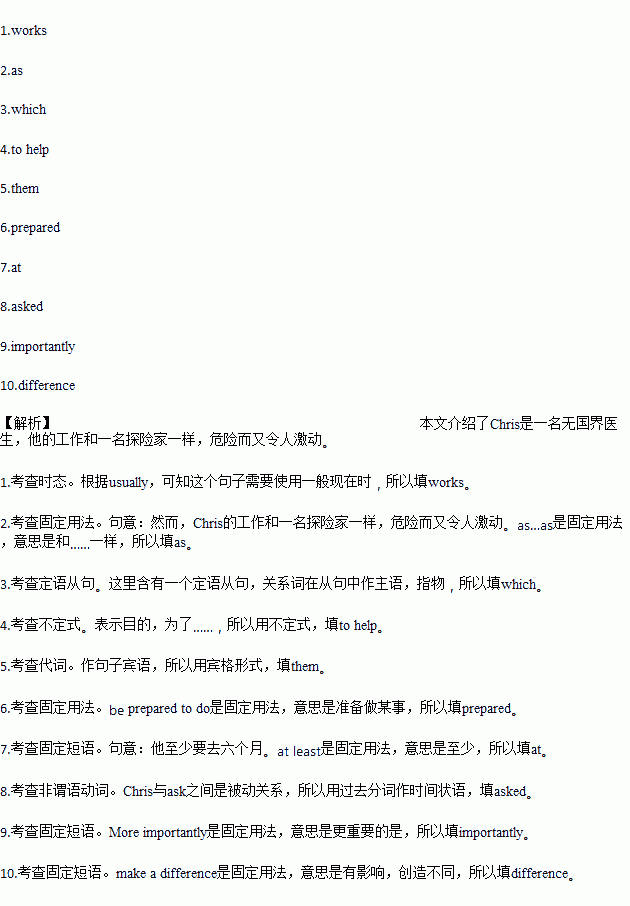题目内容
Chris is not a traditional explorer— he usually 1. (work) in an office for a large organization. However, Chris' job can be just 2. exciting and dangerous as being an explorer.
Chris is a doctor from France and he works for MSF, 3. is also known as Doctors Without Borders. MSF sends its doctors all over the world 4.(help) people after a war or a disaster. The organization received the Nobel Peace Prize in 1999.
At the moment, there are over 27,000 trained doctors taking part in MSF projects and tasks. This year, more than 2300 international doctors will join 5. (they) to provide medical help around the world. All kinds of doctors can volunteer for MSF. They need to be 6. (prepare) to go almost anywhere and, of course, they should expect difficult conditions. When MSF accepts a doctor for a task, he has to go for 7. least six months.
When 8. (ask) why he left a comfortable life and a good salary to join MSF, Chris said, “The experience I gain is a great help in my career. More 9. (important), it is great to know at the end of each task that I have made a real 10. (different) to people’s lives.”

